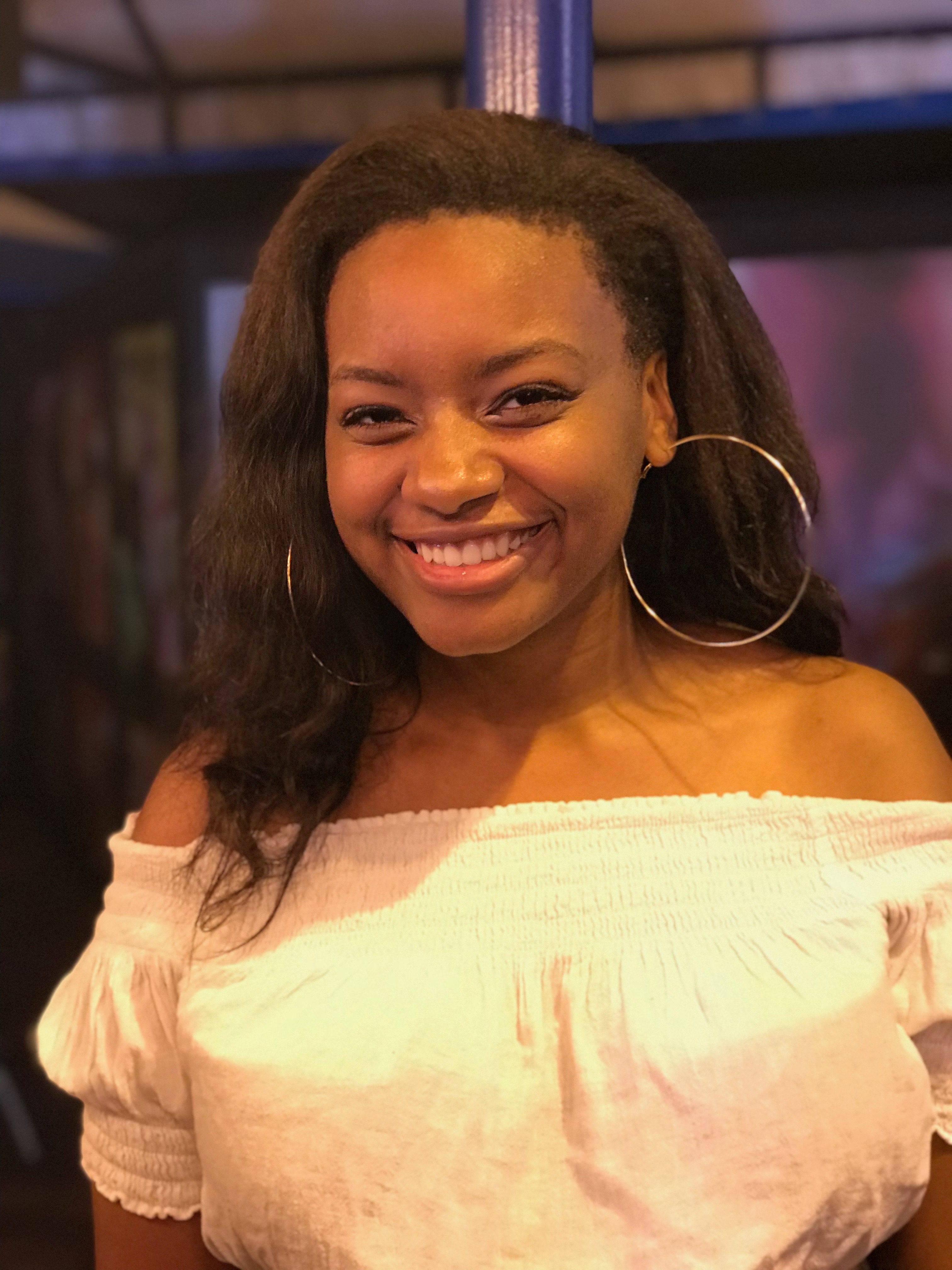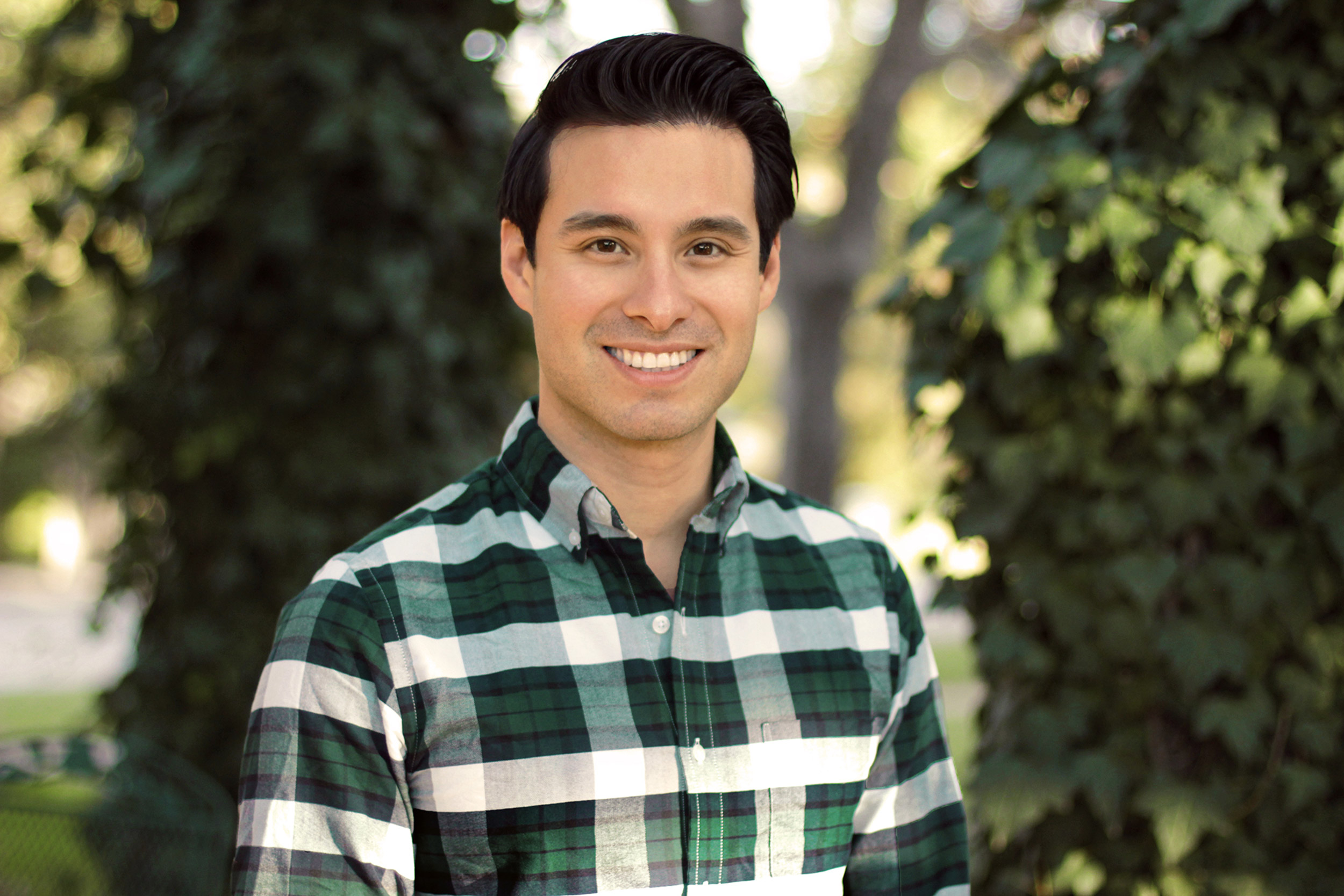Welcome to our special section, Thrive on Campus, devoted to covering the urgent issue of mental health among college and university students from all angles. If you are a college student, we invite you to apply to be an Editor-at-Large, or to simply contribute (please tag your pieces ThriveOnCampus). We welcome faculty, clinicians, and graduates to contribute as well. Read more here.
Last June, Pierre Berastaín Ojeda ’10, M.Div. ’14 was appointed as director of the Office of Sexual Assault Prevention and Response (OSAPR). As a social anthropology and ethnic studies concentrator at Harvard College, Ojeda commented that he has always been “very interested in gender-based violence.” He remarks that it is difficult to draw the line between personal and professional on these issues for him because he is so deeply passionate about them.
After graduating from the Harvard Divinity School, Ojeda worked as assistant director for the National Latin@ Network for Healthy Families and Communities, an institute devoted to combating gender-based violence in Latinx communities through federal programs and providing national training on domestic and sexual violence.
“I used to work with the Department of Justice and the Department of Health and Human Services around issues of gender-based violence specifically from a culturally specific lens,” Ojeda said. “All of the work that we did was around culturally specific best practices and moving the needle in that regard.”
Determined to implement these national programs specifically in a college setting, Ojeda said he returned in order to establish some of those best practices at Harvard. “I’m just kind of bringing all of that expertise into making a change here at Harvard,” he said.
One Size Doesn’t Fit All
Both during and after his time at Harvard Divinity School, Ojeda grappled with the subtleties that accompany fostering a community that actively recognizes culturally specific practices. He found that addressing the unique needs of marginalized communities when approaching domestic and sexual violence was an overlooked aspect of the process.
“In the United States, we have chosen what would be called a mainstream approach,” Ojeda said. “So, one size fits all.”
Ojeda notes that mainstream policies have and continue to disproportionately affect minorities. “A population-specific approach is in response to that realization that when you do blanket policies, you affect the most marginalized,” he said.
Ojeda’s culturally specific lens on domestic and sexual violence goes beyond policy to encompass post-trauma treatment as well.
“The realization that some people don’t process trauma by just sitting on a couch and talking about things, but by being in community and cooking food together and figuring out the relationship to the environment. That in itself has a healing process for people.”
Ojeda pointed out one programming, which may be effective for mainstream communities but could potentially be very triggering for disabled communities.
“There are some models of prevention education in which you play with distance. In the United States that appropriate distance for personal space is like two feet. So, some programs have students play with that distance. For many people who are on the [autism] spectrum, that can be incredibly triggering because you’re really infringing on their personal space in a way that is not trauma-informed. And so, if you were thinking about programming from a culturally specific or population specific approach, you would be thinking of those factors for different communities.”
Ojeda also noted how having diverse representation among peer educators on campus can increase efficacy of treatment. “The peer educators are representing in their lived experiences, what the lived experiences of the community is.” Ojeda said.
Ojeda hopes to bring diversity to the forefront of these peer educator groups through facilitating training that is tangential to intersectionality and aligns them with a universal mission of care under prevention education.
In addition to increasing diversity of campus-based culturally specific resources, Ojeda said the office is also attempting to develop a list of culturally specific resources in the greater Boston area.
“We ourselves might not be able to provide all types of culturally specific resources, but we can have a robust kind of referral database that we can connect people to if they choose,” Ojeda said.
Trauma-Informed Programming Comes to Harvard
In Ojeda’s first semester as Director of OSAPR, he’s begun to gradually incorporate some of these more trauma-informed, culturally specific practices into Harvard’s spaces. OSAPR is beginning to experiment with different initiatives that would diversify offerings to students and the community.
To commemorate National Coming Out Day, OSAPR partnered with the Office of BGLTQ Life to host a series of restorative yoga classes led by a trauma-informed yoga teacher. Ojeda explained that this allowed for students to “process experiences by yoga or bodywork.”
Ojeda sees the office interacting with many other groups on campus as well. “I’m really excited to connect with faith-based communities and develop some kind of ongoing programming. To have conversations at the intersection of, of faith, spirituality, and prevention education,” he said.
When asked for more clarification, Ojeda explained his interest in the intersection between religion and his work on gender-based violence.
“Sometimes survivors of domestic violence would conceptualize the experiences that they had endured or they had experienced from a theological perspective,” Ojeda said. “So they would say something along the lines of the abuse is a way that I’ve been able to purify my soul. Or this is karma. Or if Jesus went through this, then I can also do this.” It was this kind of language, Ojeda said, that convinced him to go to Divinity School and understand these kind of justifications at a deeper level.
Though it might seem easier to affect change in a community by implementing a top-down approach, Ojeda finds it critical to follow “the philosophy of meeting people where they are” and being invited into spaces. Ojeda has found much more success in implementing his ideas when groups collaboratively request this change.
Analyzing Data with a Nuanced Understanding
Before accepting a position at Harvard, Ojeda ensured that he would have enough support to execute his ideas in a manner that would cause tangible improvements. Indeed, one of the questions he asked when considering the job was just that, “How much support is there?”
Whereas in other universities, Ojeda has seen resource offices exist for the sake of existing, he finds that Harvard has “really made a commitment to these issues.”
Given this support both in terms of funding and staffing, Ojeda has been able to take a dive into data analysis. On a holistic level, he commented that Harvard is no different from any other university in terms of its reporting levels of cases or incidents.
Despite his belief that Harvard has made a commitment to these issues and invested in resources, Ojeda noted that when it comes to recent trends in case reporting at Harvard, the numbers have gone up over time.
However, rather than interpreting this data as a result of inefficiency of Harvard resources, Ojeda believes that the rising trends in reporting may be promising, as it is indicative of a student body more comfortable with communicating with faculty.
“What you see for the first five to 10 years is an increase in reported cases because the community knows that you’re going to respond and because the community knows that there are mechanisms to to help people,” Ojeda said. “ And that means that we’re doing a lot of prevention and education work and awareness in the community.”
In fact, Ojeda said that at University’s where there are very few incidents of sexual assault, this may indicate the University is “doing something to put these issues under the rug.”
He said, “If I see a campus where you have a number of reported cases that are going up as well as the commitment from the university to change this, that means that that campus is probably doing more work than the ones that are pretending that there are no cases.”
Gold Standard
Although Ojeda recognizes the progress of direct services and prevention programming in the United States, he simultaneously realizes how far behind the ideal we are as a society. Ojeda notes that because he is at Harvard, his team has the opportunity to set a standard for best practices around these issues and to shift the needle towards the ideal.
“It’s a small but really mighty community that is so invested in these topics,” Ojeda said. “If we do it effectively and we do it correctly, I see other institutions saying, wow, this is how Harvard does it.”
Ojeda sees a lot of that drive for change coming from the students themselves because when he was a student he was always surprised by the passion that his peers had.
Ojeda acknowledges the “tremendous passion and drive for students and student groups” and the diversity of peer education organizations that exist on campus. Aligned with his belief in a top-down approach, Ojeda believes these organizations have a responsibility to “channel their passion for intersectionality” in their work through having conversations around the existing intersections between their groups.
Ojeda said that while OSAPR can facilitate these interactions, the task task “really is part of the leadership of the student groups themselves” in order to ensure efficacy.
“We talk about intersectionality all the time. When I say we, I don’t mean just the office, I mean the community, right? And you hear it. Any class you go to, anywhere you go, people talk about intersectionality,” Ojeda said. “There is a way to live intersectionality, so that it doesn’t stay in the theoretical. One way to live intersectionality is intersectionality of issues.”
“Leadership Can Be Isolating”
Though Ojeda enjoys his work, he explained that “leadership can look lonely at the top,” because there can be skepticism in accepting resources from an institution right after experiencing trauma on its grounds.
This skepticism is particularly exacerbated in relation to institutions, like Harvard College, which are by nature defined as entities resistant to change.
Yet, he continues doing this somewhat isolating work because he gains reassurance by being in conversation with the students and the larger Harvard community.
“You are grounded whenever you are in community. And so to me that’s really rewarding because you really get to hear kind of the pulse of the community and you’re not just operating from this ephemeral place and doing things that people are thinking, ‘What the heck is happening over there?’ I think that really is the most rewarding part,” Ojeda said.
Given this strong belief, Ojeda has made a commitment to make both him and the entire OSAPR staff, a more visible component of the Harvard community.
Ojeda noted that since “so many systems fail,” he feels that OSAPR has an increased responsibility to make their resources more accessible and he believes a lot of that can be achieved through through reforming the physical office space. He wants to make the office a community space in which individuals can come not only when they have experienced harm, but also when they seek preventative resources or want to participate in conversations.
This engagement with meaningful and respectful dialogue is what Ojeda ultimately understands as a catalyst for culture change.
“For me, cultural change is linked to belief that that translates to behavior. So that for me is what I’m engaging in without question,” Ojeda said. “I’m centered around cultural change, not incidental cases.”
Subscribe here for all the latest news on how you can keep Thriving.
More on Mental Health on Campus:
What Campus Mental Health Centers Are Doing to Keep Up With Student Need
If You’re a Student Who’s Struggling With Mental Health, These 7 Tips Will Help
The Hidden Stress of RAs in the Student Mental Health Crisis



